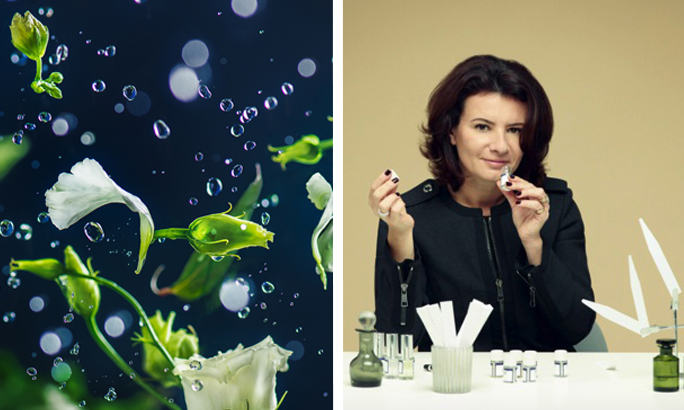1. HOW ARE WE EMOTIONALLY CONNECTED TO SMELL?
Our reaction to smell is a primal part of us. Our sense of smell goes through less brain processing on a lower level than our other senses do, connecting the olfactory nerve and the amygdala directly. For those of us who didn’t pay attention in science class; this is a structure in our brain that is critical to be able to express and experience emotions. Because of this direct connection, smell can evoke an immediate emotional response. Amazing!

2. WHAT ARE TOP NOTES, HEART NOTES AND BASE NOTES?
Just like a painting is made up of various shades of colours, different fragrance notes are necessary to make a perfume. Each of these levels are important in the composition of a perfume, and they each have their own primary purpose.
First in line are top notes; these represents the first impression. How many times have you tried a scent and immediately felt turned off? This is because the top notes didn’t instantly catch your attention. Top notes are the charmers, and if they don’t draw you in immediately, well, then too bad for that perfume!
Next, we have the heart notes. These make an appearance first after the top notes have evaporated and are considered the center of the fragrance. A perfume’s heart is a smooth combination of floral or fruity notes and is generally well-rounded and pleasant. They have a strong influence on the base notes to come.
And last but not least; the base notes! This is the essence that we remember the strongest. The base notes mingle with the heart notes to create the full body of the fragrance. The base notes are often very rich, like cedar wood, and these linger on the skin for hours and create a long-lasting impression.

3. WHY DOES FRAGRANCE SMELL DIFFERENTLY ON DIFFERENT PEOPLE?
Ever wondered why a perfume smells incredible on your friend but not so much on you? Let’s break it down; we all have different pH values and levels in our bodies. When a perfume’s molecules hit the skin, these molecules can react differently depending on pH levels and type of skin. Everything from your diet to your body temperature can affect the way a perfume is going to smell your skin. It can even be affected by hormones and other scented body care products like body lotions.
Another thing that can also change the way a scent smells is our skin type. If you for example have oily skin, it can usually make fragrances “pop” a bit more because it absorbs the essence more intensely than normal or dry skin. Sweet notes can be a bit overbearing, but fresh notes like citrus can be amazing on oilier skin. Dry skin on the other hand needs bigger fragrances with a solid good base that hold up the fragrance and make it last. Intense spices like cinnamon or heavier blooms like tuberose is a perfect choice. Do you have normal skin? Lucky you, you can wear em’ all!



